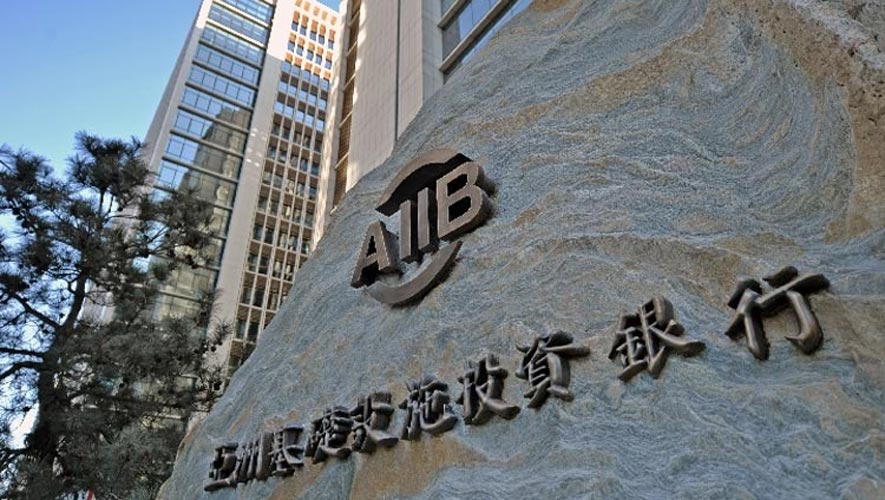Documents designed to tackle money-laundering and improve financing for small, medium, big businesses
For the latest Cambodian Business news, visit Khmer Times Business
A survey by the Asian Development Bank showing the affordability and simplicity of acquiring a legally recognised document for small, medium and big enterprises is being lauded.
It means businesses can be seen to act transparently and therefore have easier access to finance.
The Legal Entity Identifier (LEI) is a 20-digit acknowledgement that can be acquired by governments, financial institutions and businesses of all sizes.
While this may not sound revolutionary, the potential for an LEI is “transformational” according to the Asian Development Bank (ADB), which sees it as enabling a crackdown on money laundering.
As such, Cambodia stands to gain on many fronts by employing LEIs across the board.
In April this year the UN Office on Drugs and Crime published a report entitled “Transnational Organised Crime in Southeast Asia: Evolution, Growth and Impact 2019”, in which Cambodia was singled out as especially at risk.
The report noted that the growth of the Kingdom’s casino industry correlated with the 2014 crackdown on money-laundering in Macau.
This, experts fear, suggests a displacement of criminal activity to jurisdictions such as Cambodia, where regulations on gambling are less stringent.
Five-year strategy
This came just one month after the Royal Government launched a five-year strategy aimed at combating money-laundering and the financing of terrorism, which was itself partly in response to the Financial Action Taskforce’s decision to place Cambodia back on its grey-list.
However, the potential for LEIs is not limited to shrinking the space for criminal activity in the Kingdom – the resultant ease of acquiring information for banks would make it far easier for small and medium enterprises (SMEs) to access finance, the ADB suggests.
Noting that the current mandate for an LEI as set out by the G20 and the Financial Stability Board only demands financial institutions acquire an LEI, this scope will expand says Janet Hyde, an investment specialist with the financial institutions division of ADB’s Private Sector Operations Department.
‘Awareness and confidence’
“The Trade Finance Programme of ADB would like the LEI to be rolled out to all counterparties in the supply chain – especially SMEs – to provide transparency as well as raising awareness and confidence in dealings with them and eventually to provide performance and payment history with fintech [financial technology] delivery,” says Hyde.
“This is especially helpful where collateral or financial statements cannot be provided. This limits their access to bank finance,” a stastement added.
In a speech at the Cambodia International Machinery Industry Fair 2019, Director of SMEs Department at the Ministry of Industry & Handicraft (MOIH) Chhea Layhy said that SMEs made up 99.8 percent of businesses nationally.
Layhy went on to say that the MOIH is seeking to register 70 to 75 percent of SMEs by 2025 as part of the Kingdom’s national push towards a more formalised economy, noting that the constraints on the growth of this sector typically revolve around access to finance, information and international markets.
Levelling the playing field
The ADB survey covered companies, including SMEs, in a range of small and large developing countries in Asia to address the perceived viability of LEI adoption. The results found that 87 percent of respondents said an LEI was relatively easy to acquire and 65 percent said it was reasonably priced at $75 or less.
Chair of the EuroCham ICT Committee and CEO of MangoTango – a digital agency based in Phnom Penh – Chris McCarthy – welcomes the use of LEIs, but hints at potential setbacks to its success in Cambodia. “For sure I could see Cambodian SMEs getting behind this or any initiative that will help level the playing field for them, so they can compete fairly with other businesses. The value for Cambodia is the same as the value of the rest of the world – clearer understanding of the true beneficiaries of financial transactions,” he says.
“As to whether it will be successful – a quick look through the Panama Papers and similar leaks reveals a large group of legal entities, powerful families and states around the world doing their best to obscure their financial transactions. So it’s going to be a long row to hoe, as they say, to achieve compliance.”
It’s a sentiment that Ronald Almera, CEO of Cambodia-based business consultancy firm Grant Thornton, agrees with.
“I can see some benefit in that. The only issue there is, if you’re going to do this, I think it should extend to the individual as well, because there’s no concept of capital gains tax here, for an individual at least, and that’s why we’re very high on the anti-money laundering list, because people can easily get their money clean by buying land and it becomes clean.
While sceptics fear that it will be impossible to realise certain benefits of the LEI system until participation becomes more widespread, the Global Legal Identity Identifier Foundation (GLEIF) notes that the LEI population rose above 1.4 million worldwide by the end of the second quarter of 2019, with a quarterly growth rate of 3.4 percent.
That contrasts with 4.1 percent growth in the first quarter of the year.
Currently the GLEIF concedes that there is no legal requirement for individuals to acquire an LEI and cites the LEI Regulatory Oversight Committee that claims “Individuals acting in a business capacity are eligible to obtain LEIs, provided they conduct an independent business activity as evidenced by registration in a business registry, with only one LEI issued for the same individual and adequate verifications that data protection, privacy or other obstacles do not prevent the publication of the current LEI data file.”
Simple concept
When asked why such a simple concept had been so slow to get off the ground, ADB’s Hyde explains: “Because of its scale, governments and public institutions have needed to instigate the project, just as with the AML/CFT [Anti-Money-Laundering/Countering Financing of Terrorism] rollout via the financial system,.
“For example, the US, European and Indian regulators are making it mandatory for all derivative market participants to acquire the GLEIF.”
Despite the inevitable obstacles that Cambodia faces when attempting to match international standards on transparency, Steven Beck, head of trade and supply chain finance at the ADB remains optimistic in a recent interview with Global Trade Review.
“I hope our study proving that SMEs in smaller and remote countries can acquire an LEI with reasonable cost and effort will underpin serious consideration around legislation requiring LEIs.
“The potential of the LEI to be transformative is really exciting and it’s incumbent on us to work together to help drive its global adoption.”



